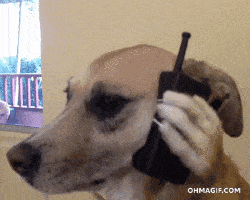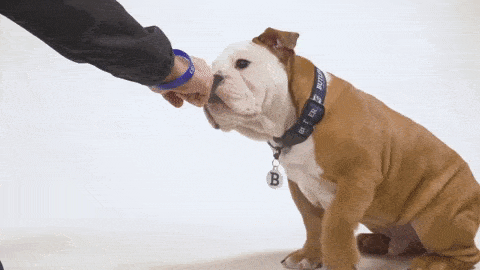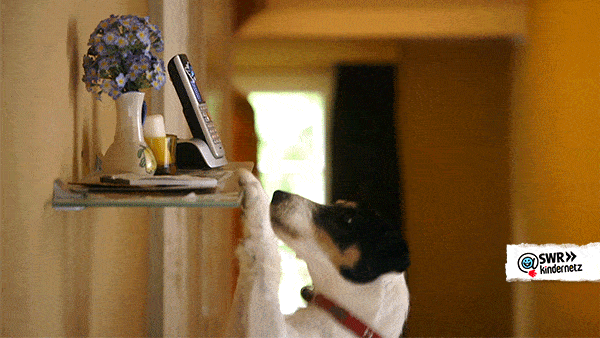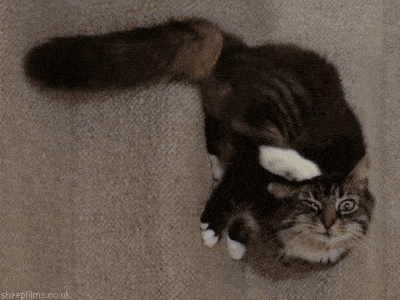Frequently Asked
My vet recommended I bring my dog/cat to you. How do we start?
We’re happy to help! The first step is a consultation with our Certified Canine Rehabilitation Practitioner (CCRP) Dr. Sara Granberg. This functional exam takes about an hour. The doctor begins by completing a series of physical and neurological exams, as well as checking muscle mass and range of motion. We will discuss your pet’s lifestyle, mobility level, nutrition, supplements, pain scale, and both long- and short-term goals. From there, we will formulate a rehabilitation program specific to your pet based on their needs and what works for you, both time-wise and financially. The doctor will create a customized rehabilitation plan including therapeutic exercise that we will teach you to do at home. If specific therapies are recommended here at the clinic, we will schedule them around your calendar and provide you with a cost estimate so you are able to plan accordingly.

If I think my pet needs to see a rehabilitation veterinarian, can I just call MARS to schedule an appointment?
Yes! Though sometimes it is recommended to see your primary veterinarian first. If you aren’t sure which route to go, you’re welcome to call our office to talk with one of our trained rehab nurses to help guide you.
How does MARS work with my primary care veterinarian?
We work in partnership with your primary care veterinarian to provide physical rehabilitative services when needed.

Can I bring my pet into MARS for routine medical care?
As a specialty physical rehabilitation practice, MARS does not provide primary medical care such as preventative/wellness medicine, vaccinations, surgical interventions, or nail trimmings. Rather, we partner with your family veterinarian to provide those services for you and your pet.
How do I get a referral?
Simply ask your primary care veterinarian for a referral or call us directly at (574) 825-9578 to schedule on your own! Self-referrals are welcome!

What can I expect at my pet’s first visit?
Your pet’s first visit will be a full comprehensive evaluation and will take about an hour. Our veterinarian and rehabilitation nurse will discuss your pet’s problems with you in order to form a customized rehabilitation plan specific to your pet based on goals discussed at your appointment.

How long do exams or treatments take and how often do I have to come?
Consultation exams, depending on the condition, usually take 1-1 ½ hours. Treatments typically range between 15-45 minutes minutes and the amount of visits depends on your pet’s condition.
What happens if I need to cancel or miss my appointment or if I am late?
We are committed to providing exceptional patient care. Unfortunately, when one client cancels without giving enough notice, they prevent another patient from being seen. Please call us at (574) 825-9578, 24 hours prior to your scheduled appointment to notify us of any changes or cancellations. If prior notification is not given, you will forfeit one package session for the missed appointment. Late arrivals will be shortened to meet the scheduled time unless time is available to enable an extension.
Does my pet need to be current on vaccines in order to receive treatment?
Does my pet need to be flea free?
Yes, we ask that your pet is on flea prevention while in our care as not to spread fleas with other patients.

Can I drop my pet off for treatment and pick him/her up later?
What is cruciate disease (ACL or CCL tear)?
The dog’s stifle, also known as the knee, is a joint that relies on a few stabilizing structures including the cranial (anterior) cruciate ligament. As the knee flexes and extends, the cruciate ligament plays an essential role in limiting the movement of the bones within the joint. The dog, unlike us, stands with its knee at an angle, meaning that the cruciate ligament is always under tension in order to keep the bones together. When the ligament is diseased, it frays and eventually ruptures. This results in a very unstable joint. The cause of most cruciate tears is unknown, 95% are known to be from some sort of degenerative process and only 5% are due to trauma. Joint instability causes inflammation which eventually leads to arthritis. The hamstring muscles will often spasm in an attempt to hold things together, but they cannot replace the action of the ligament. There are three main procedures performed when surgery is determined necessary: Tibial Plateau Leveling Osteotomy (TPLO) and Tibial Tuberosity Advancement (TTA) both involve changing the angle of the lower bone (tibia) to alter the mechanical movement of the joint and to provide stability. The extracapsular suture technique uses a length of very strong fiber to anchor the joint. All three techniques can have excellent results but talk to a board certified orthopedic surgeon about determining the right choice for your pet. After surgery, it is important to focus on rehabilitating the associated muscles in order for the dog to return to normal function safely. Rehabilitation has been shown to improve and speed recovery after these surgical procedures and helps to get them back in action safely. Rehab also offers many additional forms of non-medicinal pain management techniques such as laser therapy, acupuncture, targeted pulse-electro magnetic field (PEMF) technology, and heat and cryotherapy.
My dog has a torn cruciate ligament (ACL or CCL) and surgery is not an option, what can we do to help?
We can help! If your pet is not a candidate for surgical repair, we have several options to help build and maintain strength in both the affected limb and the opposite limb. We will also help to address pain, stability, and mobility in order to get your dog back to the best quality of life possible.
I am worried about cost. Is rehab affordable?
What does CCRP stand for?
CCRP stands for Certified Canine Rehabilitation Practitioner. This is a certificate program offered through the University of Tennessee, University Outreach and Continuing Education for veterinary and physical therapy professionals. The graduates of this program strengthen the growth of this young field of veterinary rehabilitation therapy by sharing their rehabilitation specific knowledge with other veterinarians, colleagues, and pet parents.
Here at MARS, we strive to further our knowledge and skills by encouraging staff members to continue their education through additional programs such as this, among others. Doing this helps to keep us sharp so that we are better equipped to help improve the lives of animals that walk through our doors!
Contact
P: (574) 825-9578
F: (574) 825-5736
[email protected]
515 East Warren Street
Middlebury, IN 46540
© 2020 Michiana Animal Rehab Services. All rights reserved.
Website design by LTBX.CO